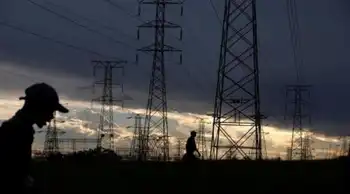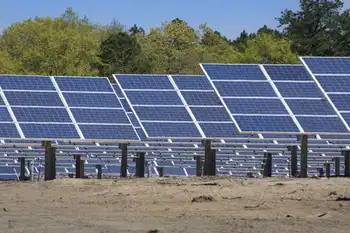Ontario closes solar generation loophole
TORONTO, ONTARIO - Rooftop solar panels that produce electricity will really have to be mounted on rooftops if theyÂ’re to get top price for their power, says the Ontario government.
The province and the Ontario Power Authority OPA discovered that many small-scale “rooftop” panels were actually being installed on the ground.
ThereÂ’s no physical reason why solar panels canÂ’t sit on ground.
But because rooftop units are expensive to install, the owners were being paid a sky-high price for their power. Planners had expected small-scale projects to be roof-mounted.
“The result is really exorbitant rates of return on those projects that’s probably out of whack when it comes to getting good value for money for ratepayers,” energy minister Brad Duguid said in an interview.
As a result, the OPA is proposing a lower price for ground-level solar power.
The market price for power on OntarioÂ’s wholesale market is currently about 4 cents a kilowatt hour. But power from rooftop solar panels was fetching 80.2 cents a kilowatt hour under provincial programs designed to encourage renewable power.
The 80.2-cent figure would allow owners of roof-top solar units to make about a 10 per cent return on their money. But when they installed the panels on the ground, which is much less expensive, Duguid said they were able to earn a return of 30 to 40 per cent.
The new proposal is to scale back the price paid fro power from ground-level panels to 58.8 cents a kilowatt hour. Power from rooftop panels will still fetch 80.2 cents. Any contracts already approved will get the higher price, no matter where they are installed.
Applicants or other interested parties have 30 days to comment on the proposal.
The OPA says it has received 16,000 applications for small-scale generation projects and a “large majority” of those are for ground-level solar projects.
Related News

Costa Rica hits record electricity generation from 99% renewable sources
COSTA RICA - During the whole month of May 2019, Costa Rica generated a total of 984.19 gigawatt hours of electricity, the highest in the country’s history. What makes this feat even more impressive is the fact that 99.99% of this energy came from renewable sources – hydropower, wind, biomass, solar, and geothermal.
With such a high generation rate, the state power company Instituto Costariccense de Electricidad (ICE) were able to suspend energy imports from the first week of May and shifted to exports. To date, the power company continues to sell electricity to the Regional Electricity Market (REM) which generates…




